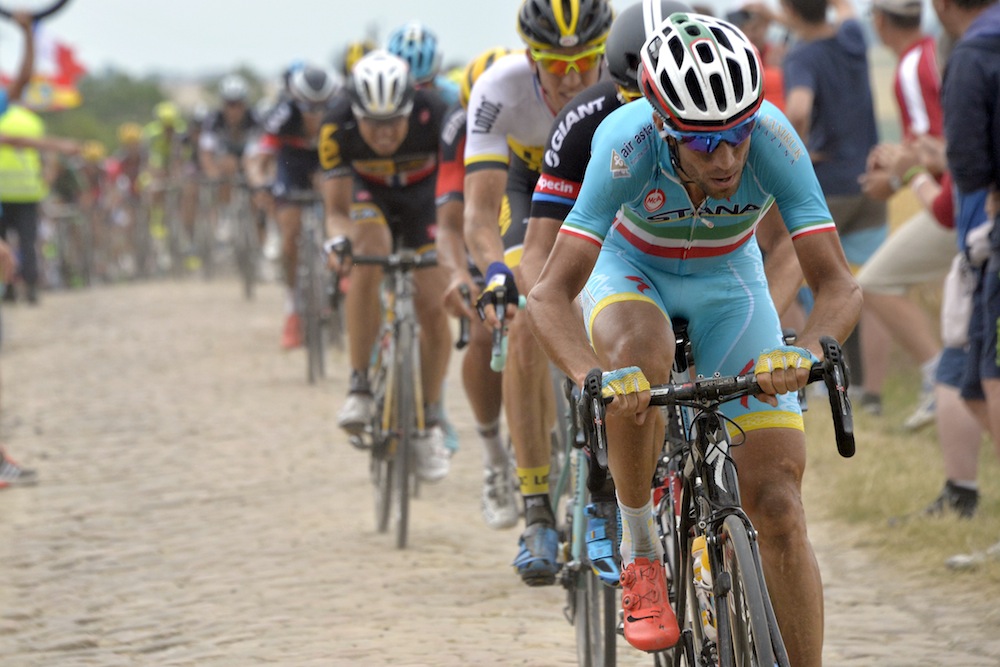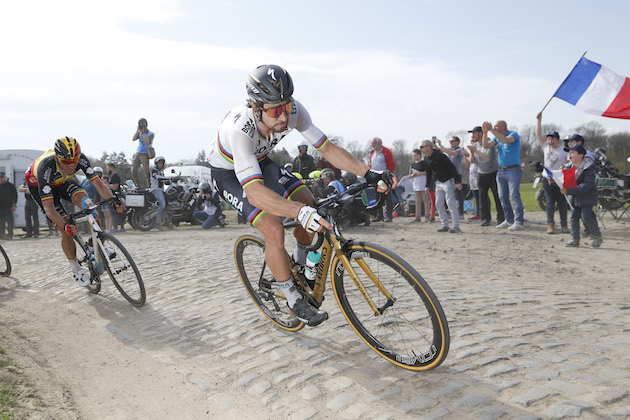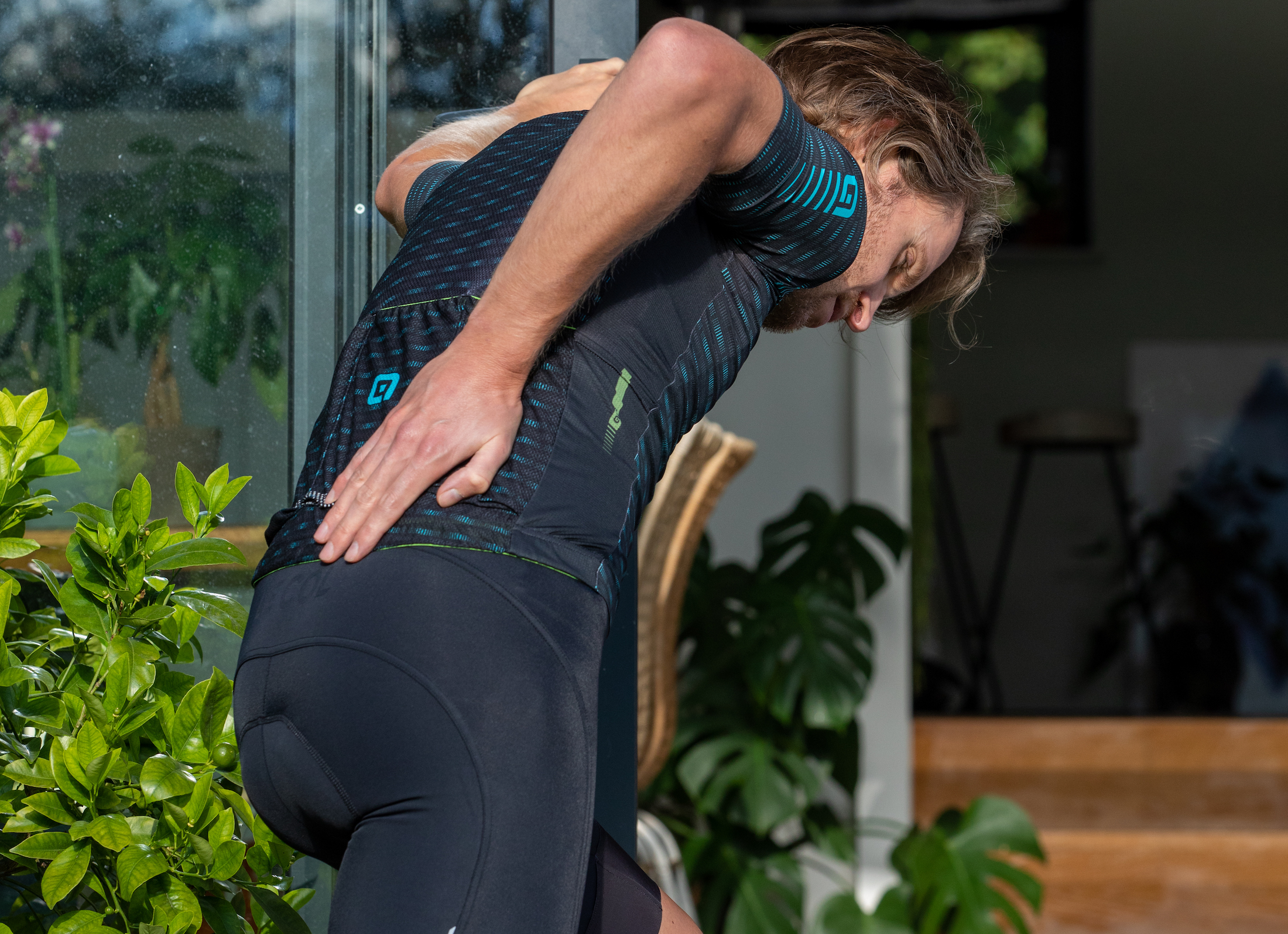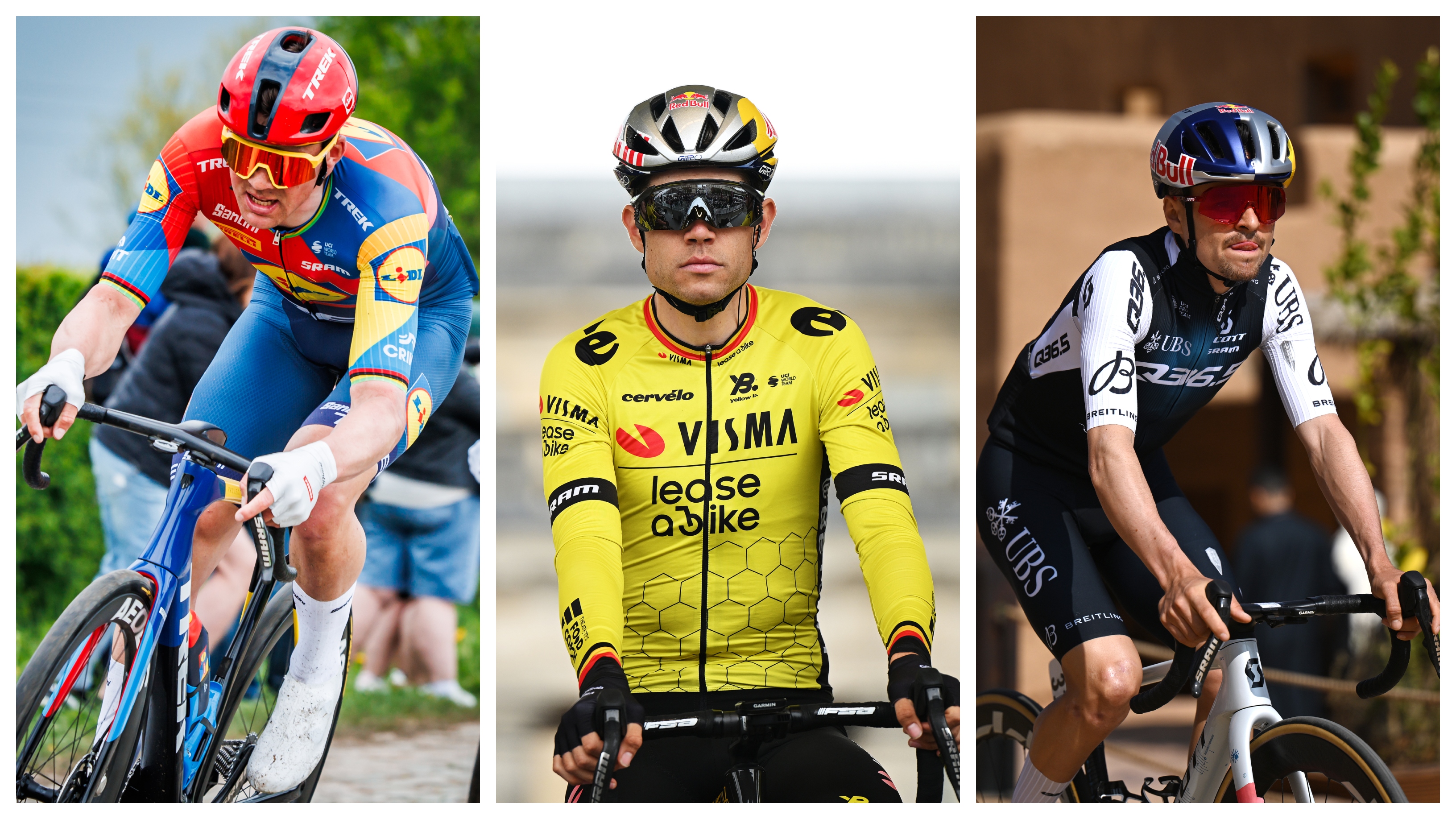'A cobbled Tour stage is way more nervous than Roubaix… it'll be much more dangerous'
Riders prepare for Sunday's key Tour de France stage over the cobbles of Paris-Roubaix

Nibali rides on the Paris-Roubaix cobbles at the 2015 Tour de France (Watson)

The Tour de France's cobbled stage nine on Sunday to Roubaix is going to be "way more nervous and much more dangerous" than racing Paris-Roubaix.
Teams have prepared for months for this one day of the Tour de France, covering 21.7 kilometres of the cobbles used in the French Monument, but no one can control what will happen.
"A cobbled stage in the Tour is definitely way different than going into Roubaix, it's way more nervous," former Paris-Roubaix winner John Degenkolb (Trek-Segafredo) told Cycling Weekly.
"Roubaix is already nervous, but here everyone is really scared to lose time in the GC and obviously it makes it much more dangerous than it is normally."
>>> Movistar continue to back Quintana for GC and won’t use him as domestique despite time deficit
The Tour de France visited the Roubaix cobbles before. Vincenzo Nibali (Bahrain-Merida) blasted clear of his rivals in 2014 to pave the way for his eventual overall victory. However, this year, the organiser is using more sections of cobbles than before.
"The good thing is the weather is good," Team Sky sports director Matteo Tosatto said. "The difference, there are riders here who've never raced on pavé. It's going to be a big show. All the teams are ready, everyone previewed it. We are ready.
Get The Leadout Newsletter
The latest race content, interviews, features, reviews and expert buying guides, direct to your inbox!
"We have a strong team for it, Chris Froome is happy for the pavé to be in the race. He says that he can even go better than is rivals, but it's also a question of luck, not to puncture in the wrong time or crash."
Five Paris-Roubaix winners will be on the start line in Arras on Sunday: Peter Sagan (Bora-Hansgrohe), Greg Van Avermaet (BMC Racing), Mathew Hayman (Mitchelton-Scott), Niki Terpstra (Quick-Step Floors) and Degenkolb.
"Van Avermaet has the yellow jersey, but he needs to ride next to Porte because that's BMC's goal," Tosatto said. "The same for Rowe and Moscon with us. Van Avermaet already won Paris-Roubaix, but the stage of the Tour is not the same."
"It'll be significantly different, the main priority of most teams will be looking after the GC riders," Bahrain-Merida boss, Brent Copeland said. "The riders who are normally on the attack in one-day races are going to be protecting their GC riders. So I don't think it'll be aggressive racing like you'd normally see.
"If one of the GC riders is feeling well, he could put the hammer down and see what will happen. Nibali's not worried about it, but he still needs luck on his side that day."
Many are hoping to victory for Peter Sagan (Bora-Hansgrohe), the three-time world champion and the 2018 winner in Paris-Roubaix.
"We want that too!" said Bora-Hansgrohe sports director Patxi Vila. "It would be fantastic, but it'll be very hard. There are many GC riders and so it's not like the Roubaix one-day where you have a full team to do it, we have to also commit to a GC rider. We have a strong team but then we need to take care of Rafal Majka and keep him alive, with no time gaps to the others."
Matt White, sports director of Mitchelton-Scott with leader Adam Yates, said that the Roubaix cobbles have no place in the Tour de France.
"I think it's fine," Sky's sports director and former Roubaix winner, Servais Knaven said. "We are in France, so how many cobbles were there in the Tour in the early 1900s?

"It's part of France, the history of cycling. Maybe it should be part of the Tour every year so the riders are not that nervous and they get that used to it.
"The stage will be totally different from Paris-Roubaix, just 22 kilometres, where Paris-Roubaix is almost triple. Tactics will be different. The riders defending GC will be trying to keep the group small and the others will be trying to split it."
"I say no," Tosatto said of whether the organiser should include cobbles. "They say a complete rider should win the Tour, but it's really difficult for the riders. It's a show, but a dangerous stage. True you can crash on normal stages, but on the pavé you are more likely to crash if you've not ridden them much."
"It's nice to have that combination of everything, for me, but also for cycling in general, to have a good variation," Degenkolb said.
"We also have to suffer overall all of these climbs, 65-kilometre climbing stages, so let's also have some cobbles."

Thank you for reading 20 articles this month* Join now for unlimited access
Enjoy your first month for just £1 / $1 / €1
*Read 5 free articles per month without a subscription

Join now for unlimited access
Try first month for just £1 / $1 / €1
Gregor Brown is an experienced cycling journalist, based in Florence, Italy. He has covered races all over the world for over a decade - following the Giro, Tour de France, and every major race since 2006. His love of cycling began with freestyle and BMX, before the 1998 Tour de France led him to a deep appreciation of the road racing season.
-
 Should I ice my injury or heat it? This is what the experts advise when it comes to treating pain
Should I ice my injury or heat it? This is what the experts advise when it comes to treating painRiding a bike results in fewer injuries than impact sports, but niggles can still creep in. Here's what to do when body parts start to ache.
-
 Tom Pidcock, Mads Pedersen and Wout van Aert - meet the stage hunters of the Giro d'Italia 2025
Tom Pidcock, Mads Pedersen and Wout van Aert - meet the stage hunters of the Giro d'Italia 2025An overview of the riders most likely to be crossing the line with their arms in the air this Giro